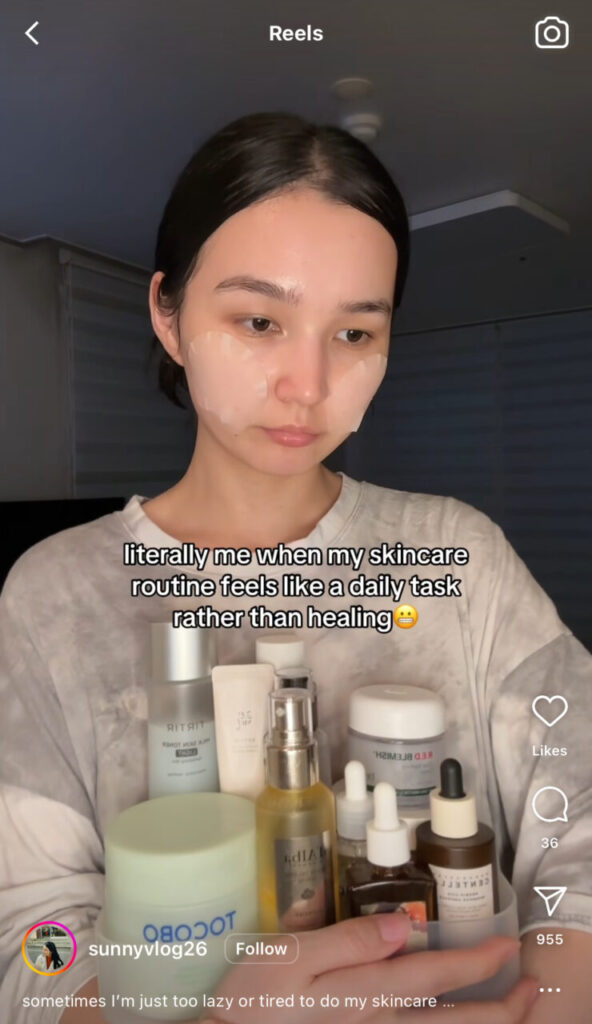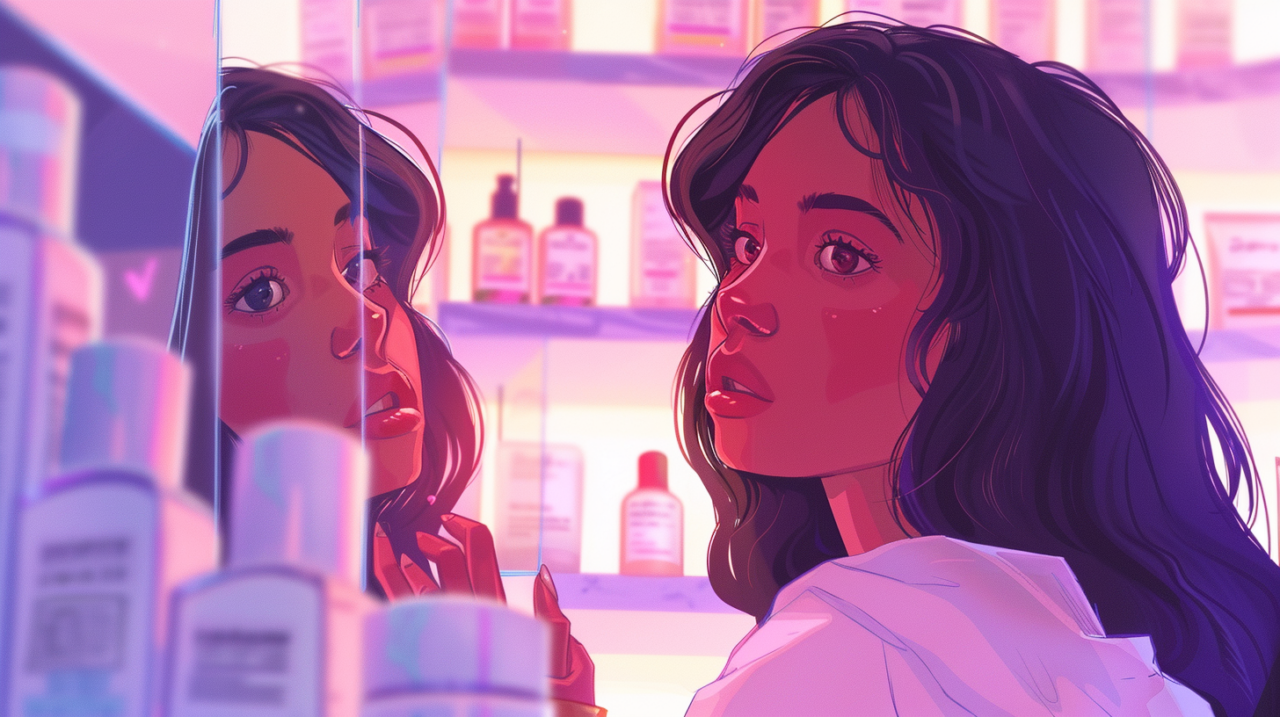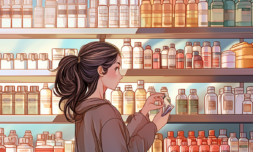Face-perfecting filters, photo-editing apps, and more time spent looking at our own faces on a screen adds insult to injury, presenting countless opportunities to consider features we feel could be improved. Lucky (or unlucky) for us, the internet is never short of solutions for these perceived flaws.
Those concerned with skin quality will be bombarded with targeted ads from beauty retailers and unsolicited advice from digital creators. Those concerned with skin texture will be coaxed to nearby aestheticians’ offices by Instagram ads marketing flash sales on Botox and lasers.
While getting regular beauty treatments and stockpiling cosmetic products until our bathrooms resemble a miniature Sephora is not exactly a crime, doing so can be a serious drain on our personal finances and the planet’s resources.
Most of all, the endless pursuit of beauty can become utterly exhausting.

On the pursuit of beauty
Is a desire to seek out beauty and acquire it inherently bad? I would argue that it isn’t.
The pursuit of beauty is what calls us to visit art museums, install sunset lights in our living rooms, and stroll through nature gardens on the weekend. Beautiful things bring us happiness and pleasure, and who doesn’t want that?
Still, when our pursuit of beauty is so heavily directed at ourselves, coupled with the belief that we can achieve perfection if we just ‘self-care harder’ with the right product or treatment… that can lead to some serious spiralling.
Even more so when our ‘understanding’ of what is beautiful is shaped by doctored images we see on social media, where 70 to 90 percent of users admit to editing content they post.
With filters and photoshopping being almost a given on social media, experts suggest we recalibrate our relationship with our appearance by avoiding it altogether.
A recent study from the American Psychological Association found that limiting screen-time is one of the most effective ways to protect ourselves from developing the poor body image and damaging behaviours triggered by extensive social media use.
For those who already experience anxiety around their health and appearance, the explosion of wellness and beauty content now available online can heighten feelings of unease. This, more often than not, leads to stress that leaves us worse off mentally and physically than we began.
It’s time to get real
While the beauty industry is predicted to continue on its trend of steady growth – almost doubling in market size by 2033 – it’s not necessary for it to be tainted with tiring toxicity.
What will be required to achieve this, though, is a massive overhaul in our way of thinking: one that prioritises self-acceptance over the urge to constantly improve and alter how we look.
Many influencers have nobly begun disclosing their use of editing and filtering, using the #FilterVSReality trend, reminding their followers not to believe everything they see online. While this may seem like a small step, content of this nature is generally received by audiences as eye-opening and self-esteem boosting.
Another way to achieve this shift could come from the next generation of parents, who are well-seasoned in the deception of social media and all its filters.
While the parents of Millennials and Gen Z couldn’t predict the repercussions of social media because they did not grow up with it, the next generation of parents could be inclined to steer their kids away from falling into negative ideations of beauty.
Still, this will depend on us no longer being lost in the sauce.
So whether you freak out because you brushed your teeth after doing skincare or regularly experience beauty burnout from committing to an unnecessary long skincare routines – it may be helpful to remember: beauty is only skin deep.
The people in our lives whom we consider to be the most beautiful probably aren’t viewed that way because of their outer beauty. For that reason, it would be foolish to apply a different standard to ourselves because of fleeting internet trends and fickle beauty standards.




















